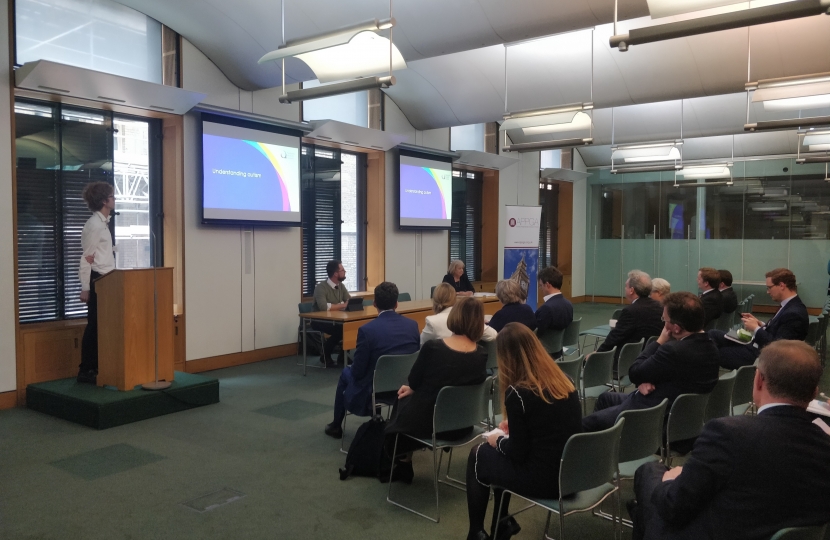
In parliament recently I had the privilege of attending a unique training session. The National Autistic Society came to Westminster for the first time ever to train MPs on how best to support people with autism in our offices, whether they be visiting constituents or employees.
Autism was first medically recognised over 50 years ago, but still there is limited understanding of the disability and how it affects peoples’ lives. In part, this is because it can be an invisible disability, with no outward sign of difference at first sight. It is estimated over 700,000 people live with autism in the UK, and each one has a different story to tell. It is truly a spectrum condition; one person’s experiences and coping mechanisms may be almost completely opposite to another’s. It is not a mental health disorder, but the isolation and lack of support and understanding that individuals can experience when living with autism can cause issues. A third of children with autism report being bullied, and 17% have been suspended from school at some stage. The issues they face do not end in childhood, as people in autism can struggle to hold down employment and receive the support they need in order to live fulfilling lives.
The main things to remember when trying to communicate or work with someone with autism is that they can need extra time to process information, experience anxiety in social situations or with unexpected changes or suffer from sensory overload i.e. struggling with loud noises, bright lights or powerful smells. People in this situation can experience a meltdown or shutdown, where they react by either lashing out or becoming seemingly disinterested, but not every autistic person will have the same reactions in the same situations.
The best way to aid someone at these times is to allow the time and space to tell you what they need. Our natural instinct if someone appears troubled is to ask questions, but for someone with autism this can be more distressing. We cannot always easily perceive the issues someone might be dealing with, so it is important that we give them the opportunity to explain in the best way they can so that we can properly engage with them and allow them the chance to contribute.
I’m very grateful for the presentations made by the National Autisitic Society, and will try to remember the training I have received if any constituent with autism calls upon my office for assistance. If you would like more information on how best to help those with autism, visit www.autism.org.uk.

